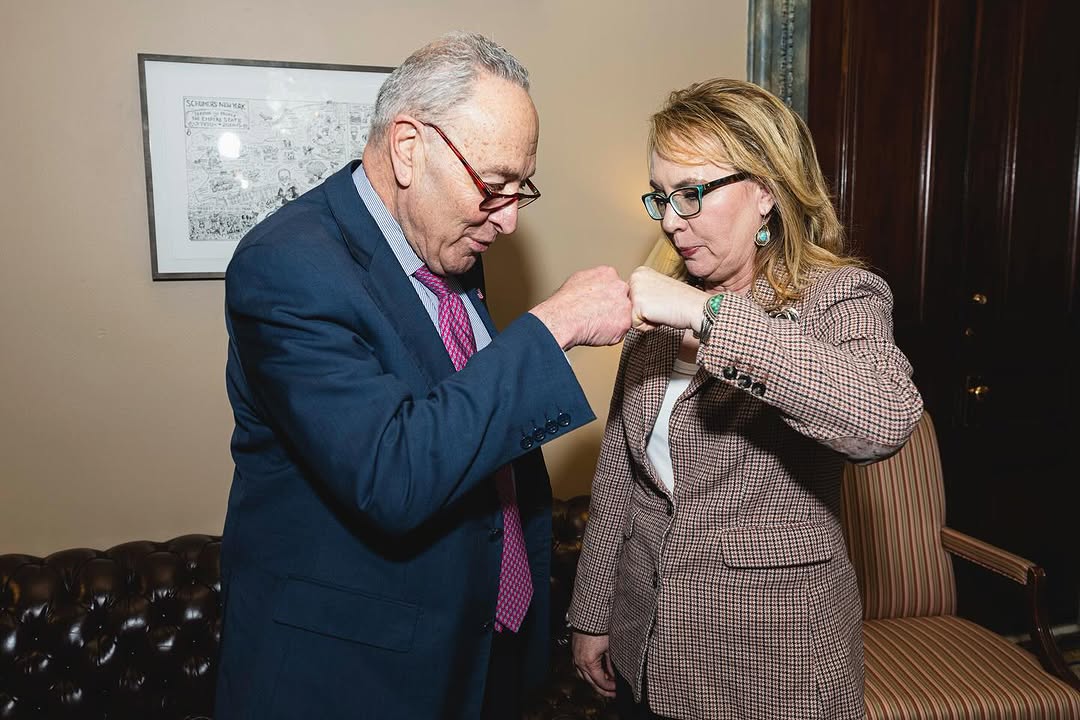Will Public Service Heroes Finally Get Their Fair Share? Senate to Vote on Social Security Reform
In a landmark move for millions of retired public servants, Senate Majority Leader Chuck Schumer has announced that the Social Security Fairness Act will be brought to a vote. This legislation, which has already passed the House of Representatives, represents a significant step towards correcting decades of financial inequities faced by public service workers, including teachers, firefighters, and police officers.
The bill, scheduled for a Senate vote, has sparked widespread hope among advocates and retirees. If enacted, it would repeal two federal policies—the Windfall Elimination Provision (WEP) and the Government Pension Offset (GPO)—that have long reduced Social Security benefits for retirees who also receive pensions from jobs not covered by Social Security. These policies currently affect nearly 3 million retirees across the United States.
A Closer Look at the Problem
Terry Hoover, a retired firefighter from Louisville, Kentucky, illustrates the issue. After over two decades of service, Hoover's Social Security benefits are reduced by more than $1,000 monthly because of his pension. “My Social Security is reduced due to my pension,” Hoover said at a recent rally. “And my wife, who worked as a nurse for 41 years and contributed to Social Security, is unable to have me draw any benefits from her contributions because of my pension.”
Public servants like Hoover are not alone. The WEP affects approximately 2 million Social Security beneficiaries, while the GPO impacts nearly 800,000 retirees by reducing spousal and survivor benefits. These cuts have left many retirees struggling to make ends meet despite years of dedicated service.
What the Social Security Fairness Act Proposes
The Social Security Fairness Act aims to abolish both the Windfall Elimination Provision (WEP) and the Government Pension Offset (GPO), restoring full benefits to millions of retirees. These provisions, initially introduced to prevent "double-dipping," disproportionately affect public service workers like teachers, firefighters, and police officers who earn pensions through state or federal employment not covered by Social Security. As a result, many of these workers, despite paying into the system through other jobs or their spouses’ contributions, receive reduced or no Social Security benefits.
Social Security currently provides critical income for retired workers, disabled individuals, and surviving family members. Funded by payroll taxes, it operates on a system where current workers support retirees. However, public service employees covered by alternative pension systems are often excluded. Advocates argue that these exclusions are outdated and unjust, failing to recognize the sacrifices made by individuals who dedicate their careers to serving communities.
By restoring benefits, the legislation would ensure surviving spouses and family members are no longer penalized for their loved ones' public service careers. Senate Majority Leader Chuck Schumer emphasized, “This is about justice. Americans shouldn’t be penalized for dedicating their lives to public service.” Supporters stress that full Social Security access acknowledges the value of these workers and encourages more individuals to pursue careers in these essential sectors.
A Legislative Journey Decades in the Making
Efforts to repeal these policies have been ongoing for decades. Various versions of the Social Security Fairness Act have been introduced in Congress, but none have successfully become law. Shannon Benton, executive director of The Senior Citizens League, expressed cautious optimism. “I’ve been working at the league for 25 years, and I don’t recall a time without a version of this proposal,” she said. “But we are closer than ever.”
Bipartisan support has grown steadily. The Senate version of the bill now boasts 62 co-sponsors and requires at least 60 votes to pass. Republican Senator Bill Cassidy of Louisiana, a co-sponsor, expressed confidence in its prospects. “If Schumer brings it up, it’ll pass,” Cassidy said.
Related: Senate Passes Social Security Fairness Act: A Landmark Victory for Public Sector Workers
Opposition and Financial Concerns
Despite widespread bipartisan support, the Social Security Fairness Act faces significant opposition rooted in financial concerns. Critics argue that the proposed legislation, while well-intentioned, would place an additional burden on an already strained Social Security system. The Congressional Budget Office (CBO) estimates that the bill could increase federal deficits by $195 billion over the next decade, further complicating efforts to address the projected insolvency of the Social Security trust funds. According to current projections, these funds are expected to run out by 2035, at which point benefits could face a significant reduction unless reforms are implemented.
Senator Mike Braun of Indiana has been vocal in his skepticism, stating, “Nothing ever gets paid for, so it’s further indebtedness.” His remarks echo the sentiments of many fiscal conservatives who are wary of expanding benefits without identifying a sustainable funding source.
The U.S. economy is already grappling with elevated national debt, which recently surpassed $33 trillion. Inflationary pressures, rising interest rates, and continued federal spending have intensified debates over how to allocate resources responsibly. Advocacy groups such as the Committee for a Responsible Budget caution that adding nearly $200 billion to the deficit could undermine future reform efforts and destabilize the program further.
As lawmakers weigh the merits of the Social Security Fairness Act, the challenge remains finding a balance between ensuring fairness for public service workers and safeguarding the financial health of the Social Security system for all Americans.
Related: Senate to Vote on Historic Expansion of Social Security Benefits
A Race Against Time
With the congressional session nearing its end, the clock is ticking. If the Senate fails to act by December 31, the measure will expire, forcing advocates to restart the legislative process in the new Congress. “Not only would this bill need to be reintroduced from the beginning, but a new sponsor would also have to be found,” Benton explained.
A critical procedural vote is scheduled for Wednesday at 2 p.m. The bill must secure 60 votes to advance—a challenging hurdle given potential opposition from Republicans who argue the issue should be addressed as part of broader Social Security or tax reform efforts.
What’s at Stake?
For retirees and their families, the stakes are enormous. If passed, the Social Security Fairness Act would restore benefits to millions and eliminate long-standing inequities. For public servants like Hoover, it’s not just about financial relief; it’s about recognition and justice for their contributions to society.
As the vote approaches, the nation watches closely. Will the Senate finally deliver on a promise that has eluded retirees for decades?
Public service workers are the backbone of our communities, yet they often face financial penalties for their career choice. Teachers, firefighters, police officers, and countless others dedicate their lives to serving society, frequently sacrificing higher private-sector salaries. The least we can do is ensure they receive full Social Security benefits and retirement security.
By eliminating the unfair Windfall Elimination Provision (WEP) and Government Pension Offset (GPO), we can make public service careers more appealing, helping to attract and retain skilled professionals in fields that are always in high demand. These sectors are critical to the well-being and safety of every American, and they require a stable workforce.
Denying full benefits to those who protect, educate, and serve us is both unjust and counterproductive. Let’s honor their commitment with fair compensation and ensure these vital roles remain filled by the best and brightest. Fairness isn’t optional—it’s necessary.














